Table of Contents
Whilst I enjoyed the whole affair, Capacities is not currently for me. But it might be, and here’s why.
I’ve not been doing much on the writing front this last week. A combination of kids parties and feeling under the weather, mentally and physically, have forced a break on the usual ‘5–9’, and ‘9–5’ as it also happens.
All that, and maybe I might have been having a little love affair on the side with the new note-taking app that is Capacities.io.
The people at Capacities HQ are onto a great app and they should be proud of what they are creating. Thanks to being inspired by PKM Beth and a few others taking the leap, I took a little foray to see whether it was for me.

Why Capacities captured my interest
Capacities is a super nice app and I can see why people are converting to it. I would describe it as a pared-down and focused Notion, with some Obsidian-esque features. By using an object-focused method to tie things together, it takes the fear out of where or how to start.
Sort of.
‘Objects’ are central to how Capacities works and are their major draw, but also where it gets confusing to begin with.
It took a little while to get my head round how it works. I kind of think of ‘Objects’ like templates or ‘things’. So think of a ‘thing’ we might put into our PKM; like a book, a YouTube video or in my case, mostly research papers. We can keep these things pretty open, so we could have media to incorporate videos, podcasts and books, rather than just books alone.
If we wanted, we could then have a video collection, a book collection and a podcast collection. Just like in real life.
How ‘things’ work
In my case for research papers, every paper I read has a title, authors, a publication date and many more standard attributes. In fact any information put into a PKM has some kind of standard attributes. From daily notes to quick notes, from personal weekly reviews to team meetings, along with detailed analyses of a book you are reading, these all have standard attributes or properties which can act to tie them together into some‘thing’.
By assigning everything to be a ‘thing’ (or ‘Object’), it can avoid the inevitable lost and floating notes which our PKMs can suffer from. It’s not the same as using folders, it’s more like … a bookshelf for books which sometimes need to sit on your coffee table or on your bedside table.
My ‘Source’ object
In the screenshot below, there’s an object I created, which I called ‘Source’. It’s basically a template for every research paper I would wish to import into Capacities (which I need to do manually BTW, but that’s OK). Every paper has these details, and if they don’t, I just leave them blank. No biggie.
If I change something here for this ‘thing’, it will update it for every source which uses this template. Nice.
You can see some of the attributes I’ve added, like ‘Author(s)’ and ‘Supporting Sources’, are links to other things in my Capacities database.
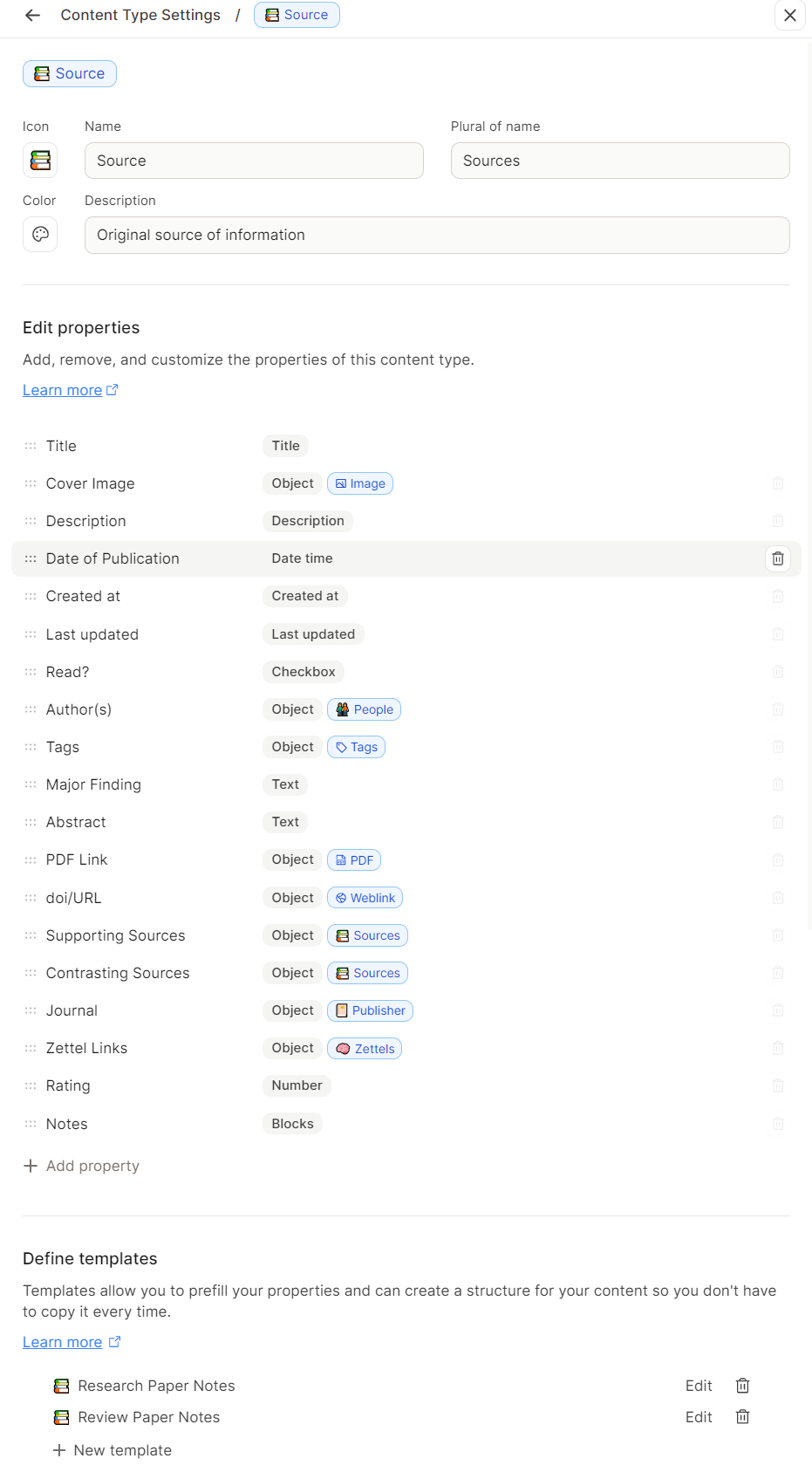
At the bottom ⬆, you’ll see I’ve made templates for experimental papers and review papers because the notes I take for each one differ in style. I'll go into these in a later post.
Here’s an example of what a review paper I’ve made notes on, looks like, using the ‘Encyclopedia View’:
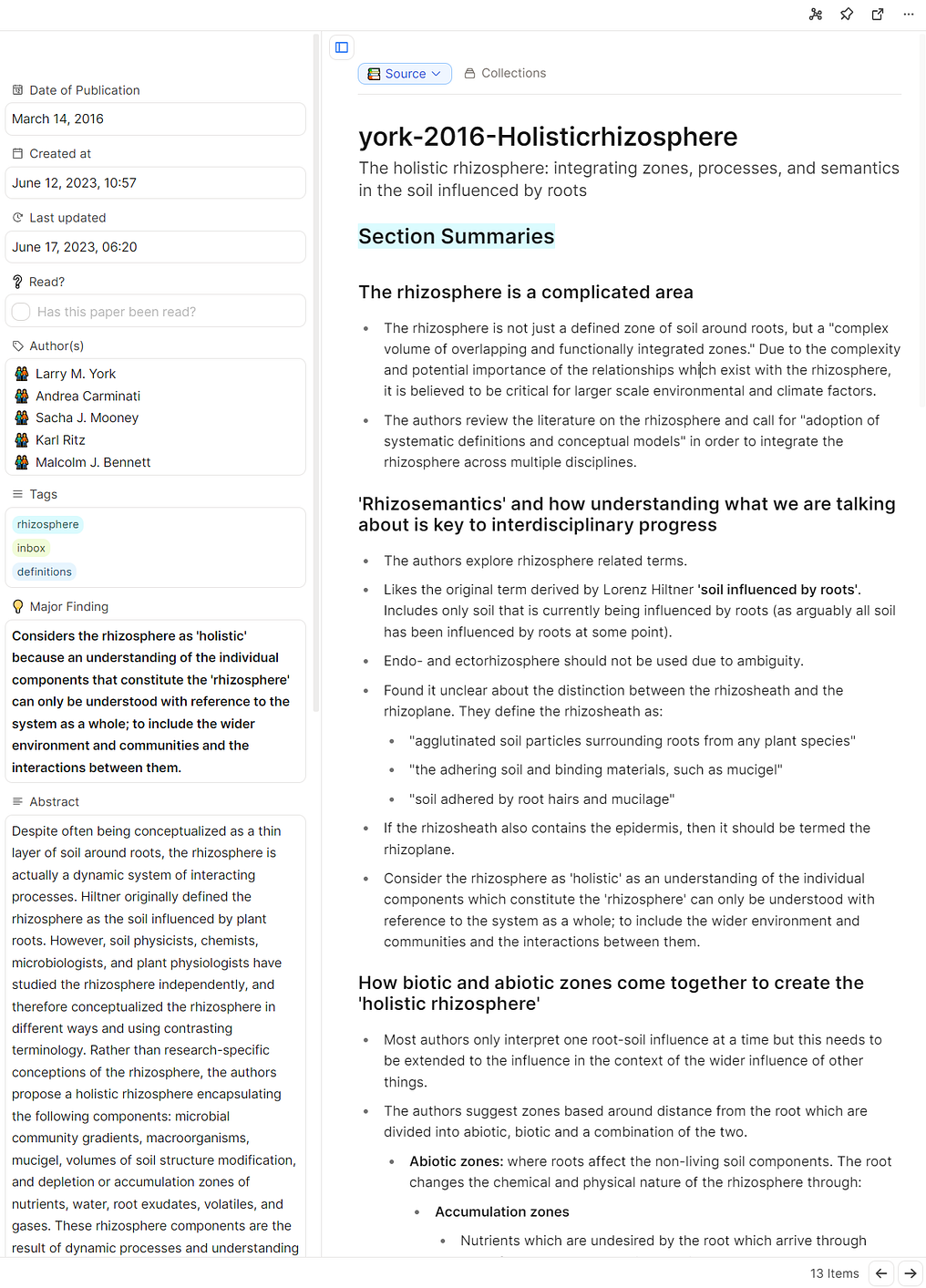
This is so nice, don’t you think? It’s a much nicer view of how the same information would look in Obsidian. The data on the left would be stuck somewhere between a giant YAML header and less easily categorised body text.
(In fact, as I write this, I’m looking at it now and thinking twice about my use of Capacities … 🤦♀️)
If you like a Zettelkasten system
And here’s an example of another Object I created; this time a Zettel in Index card view.
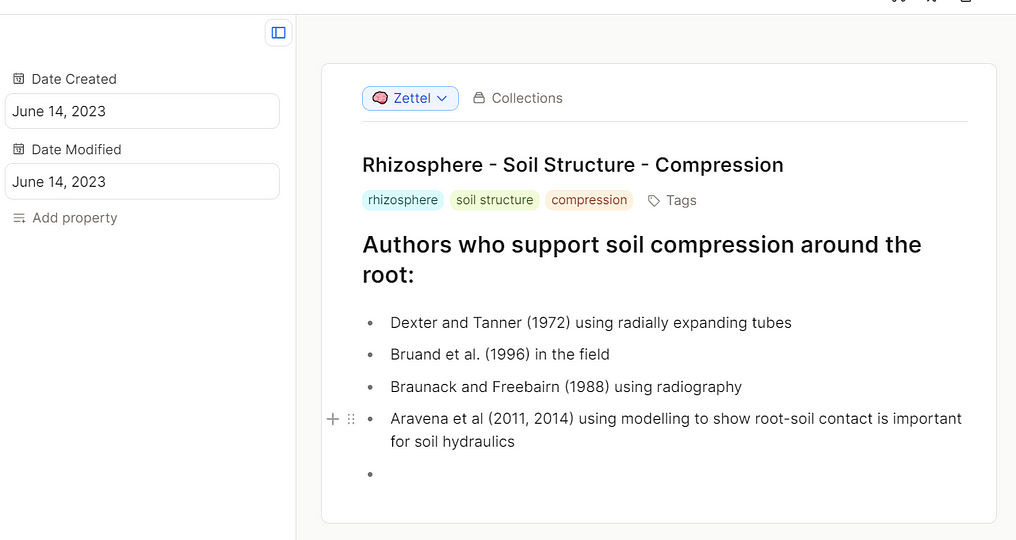
I want to cover my Zettel naming system in another post. I've since changed how I do zettels but I'd like to cover the different ways we can approach them.
From pdfs, to images, to websites, to tweets, everything is a ‘thing’ in Capacities. It might seem restrictive, but is there anything in your own PKM to which you could not assign a ‘thing’? Not a place, but a thing.
Other cool things I really liked about Capacities
I loved the ‘People’ object. I have some people in Obsidian, but I don’t tend to do much which their pages except occasionally add in interesting tweets or blog posts.
Like Notion, we have different views of our things. Here’s all my ‘People’ who I’ve added to the collection ‘Academics’ and we’re looking ath this in the ‘Table’ view:
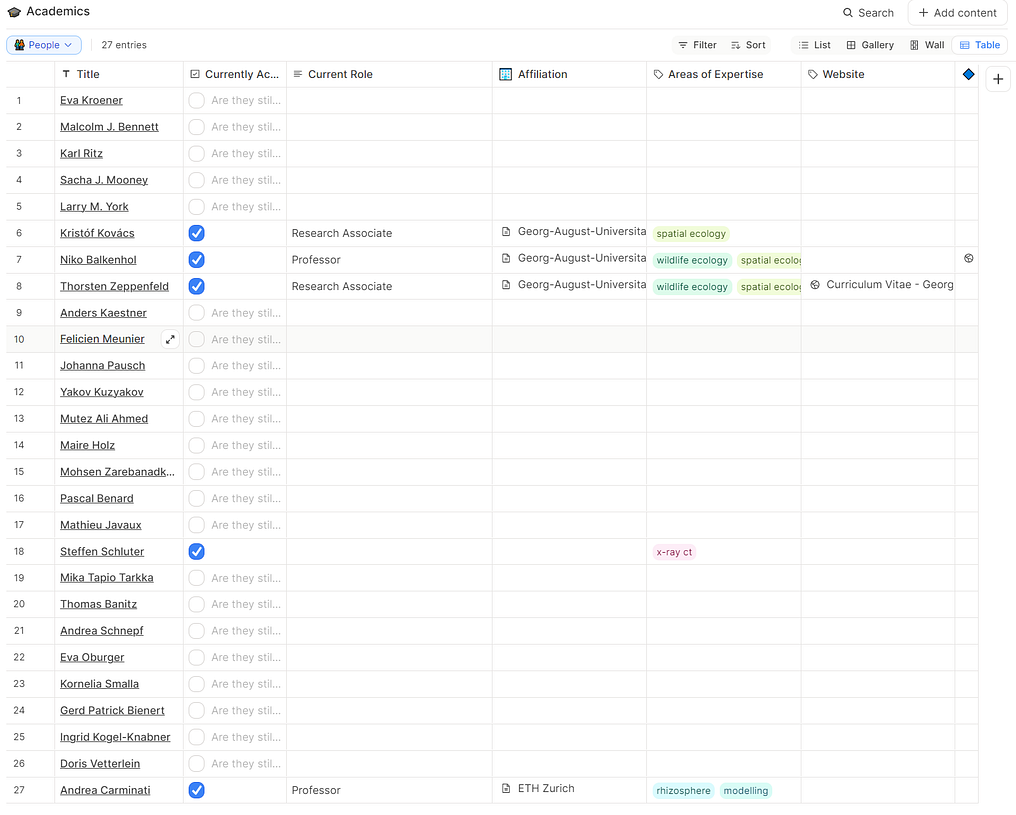
I also loved the fact I can Whatsapp my PKM. Now that is cool! Whilst at the moment it is a way to quickly add notes and pictures, I feel that one day, this could be a two-way conversation;
“Hey Outside Brain, what’s that paper with Carmin… something which looks at how lupin plants rehydrate after they get watered?”
“Is this what you are looking for?: [[zarebanadkouki-2016-Hydraulicconductivity]]; In lupin plants the rhizosphere has a delayed rewetting after irrigation imaged using neutron radiography. Authors estimate rhizosphere hydraulic conductivity. Would you like to append a note?”
“Look up the direction they watered from. #todo”
(Basically replies with note title, a link and a specified section of a note and allows you to append a random thought you had…)
So if there are any app developers out there, you read it here first!
Because tweets, images, PDFs and websites all are things too, I really like how we can assign attributes to images. This is an incredibly potent capability for photographers and videographers who need this and makes for a much nicer media experience in a PKM generally. Through this, it lives up to ‘The studio for your mind’ motto, which I love BTW.
Capacities almost has my heart, but there were some deal breakers
For now, I’ve cancelled my Believer subscription, not out of not believing, but out of the need for focusing on developing my system, rather than my app. Capacities may still have a place, it may even be ‘my system’, I just haven’t worked out the part it has to play yet. At the moment it overlaps too much with Obsidian.
The deal was also broken on the day my internet started misbehaving. For anyone who has a questionable internet connection, having your PKM system completely available offline is an absolute must. It’s a major reason I don’t use Notion and a major reason why I currently can’t switch 100% to Capacities.
Weirdly, it’s actually only the pdfs which don’t work offline. They seem to be hosted in the usual Amazon magical web cloud. I don’t know why these are hosted online and the rest seems to be local.
Another annoyance, was it often froze when I was copy and pasting information; either highlights from a pdf or just rearranging content on the page.
Another potential limiting factor, is its price. It has a free version but this would limit use to a computer and limit your view options (i.e. you wouldn’t get ‘Encyclopaedia’ and ‘Index card’ views screenshotted above). I paid for monthly ‘Believer’ to try out the extra features and it cost me £9.75 for a month (thanks Medium income, i.e. you the reader, for permitting this…). The yearly Pro rate, to be launched soon, will be in the region of $120. It’s more expensive than Notion and Obsidian Sync. But that’s not to say it’s not worth it. But at the moment, it’s a price which requires commitment and I’m not 100% committed.
I also want to spread my Medium income around different developers and people to support multiple ideas. I may come back, but for now, it was fun and you taught me a lot.
It was fun while it lasted but I’m continuing with Obsidian, for now…
Whilst it may have felt like an unproductive use of my time, this little experience with Capacities taught me a lot about my own system, what it needs to do, what I need to improve and some changes I could make to get there. This is more valuable than anything an app can actually do.
(However, as I have been writing this and putting Capacities through its paces, I realise, I do really like it. It just makes sense for my scattered brain to anchor things together. And the readability is just so much nicer. I may just re-subscribe before the end of my first month… TBC).
As a lead into my next post, where I will reflect on what I have learnt, I want to end by saying sometimes we need to go off experimenting to find out where we really need to go!
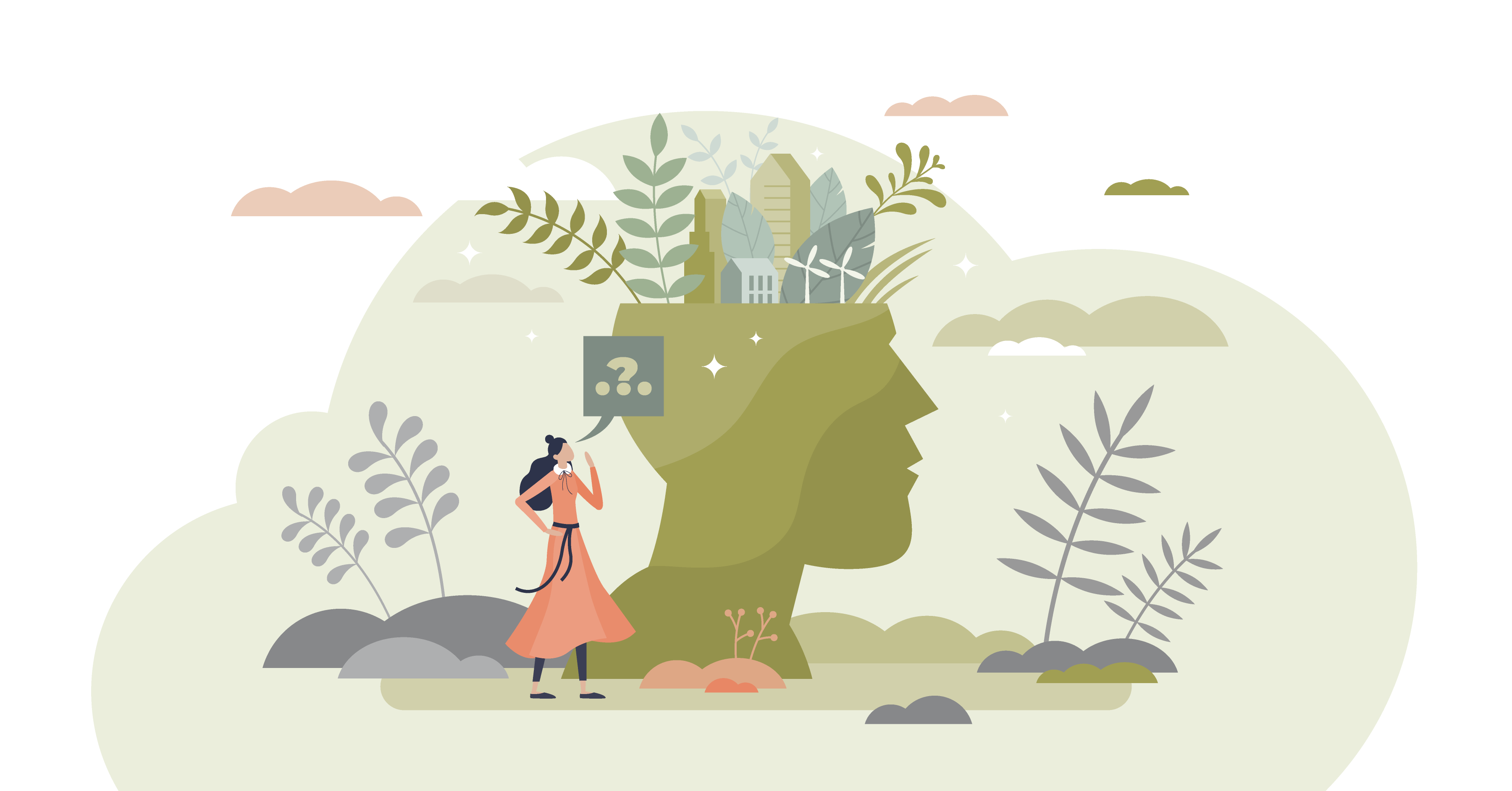

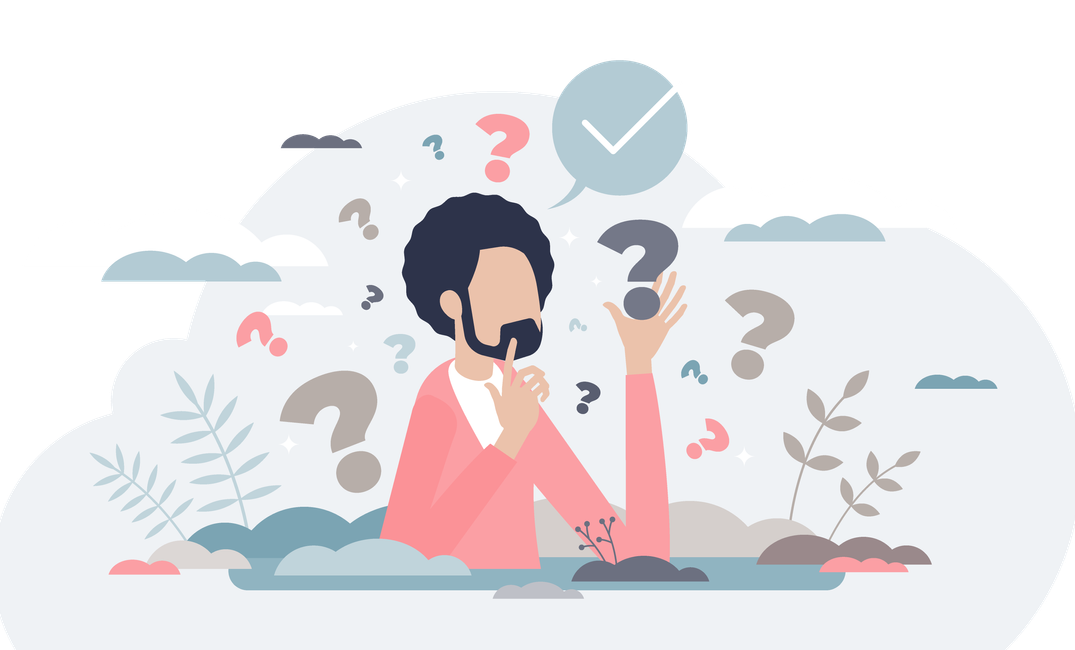


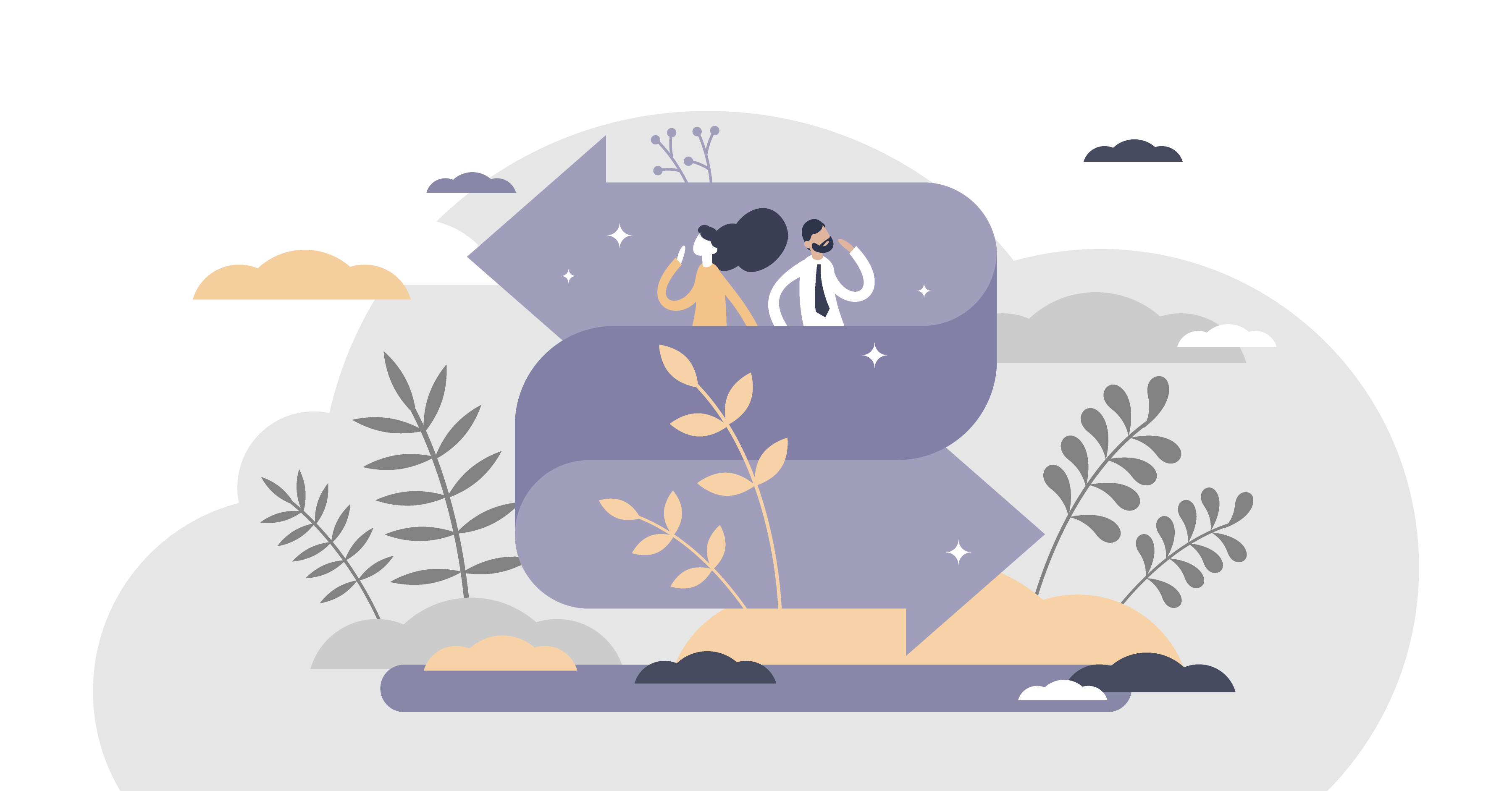


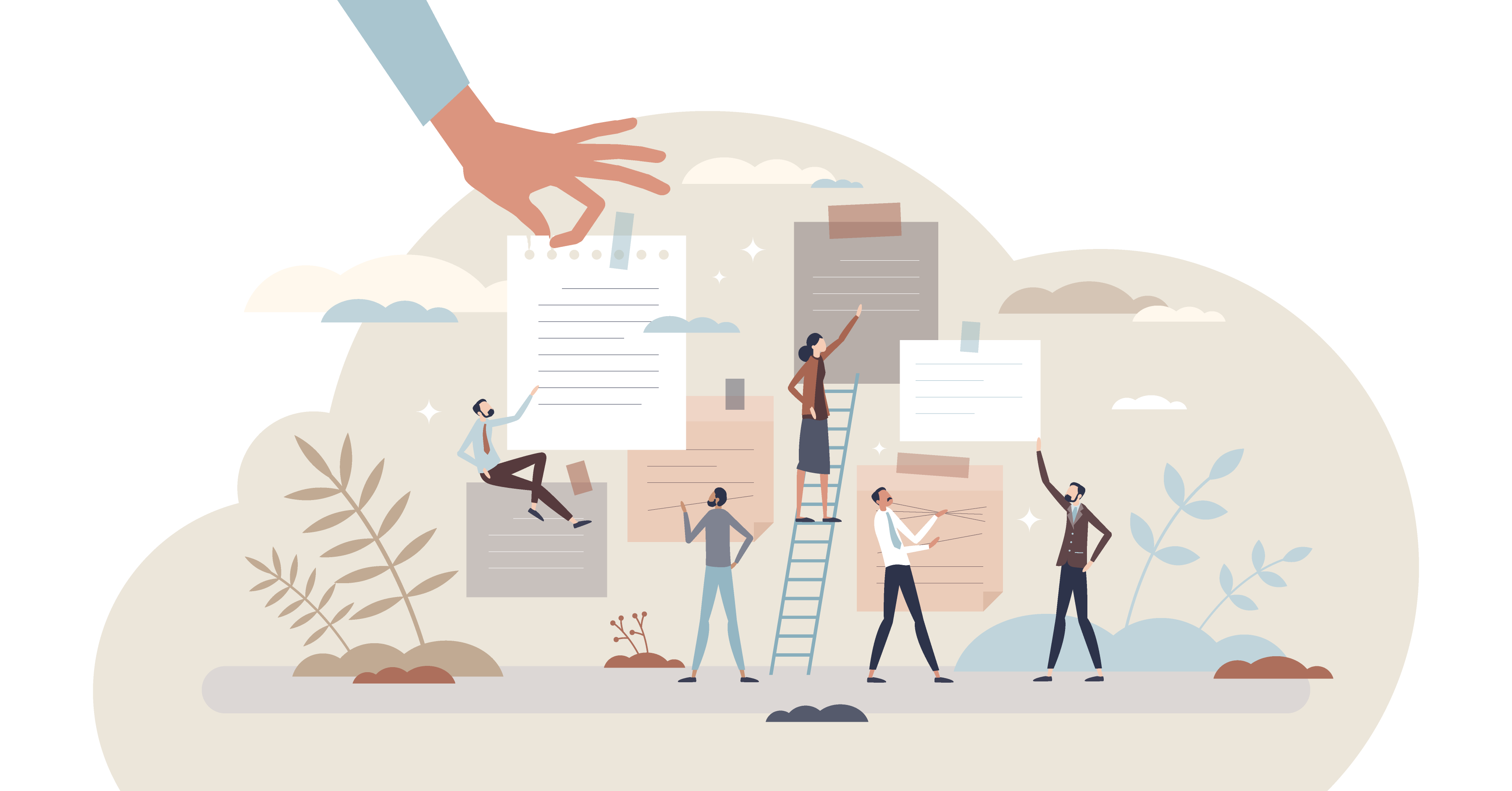
Comments